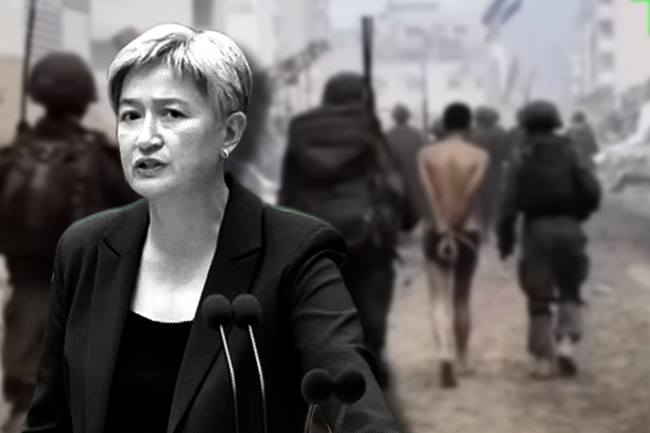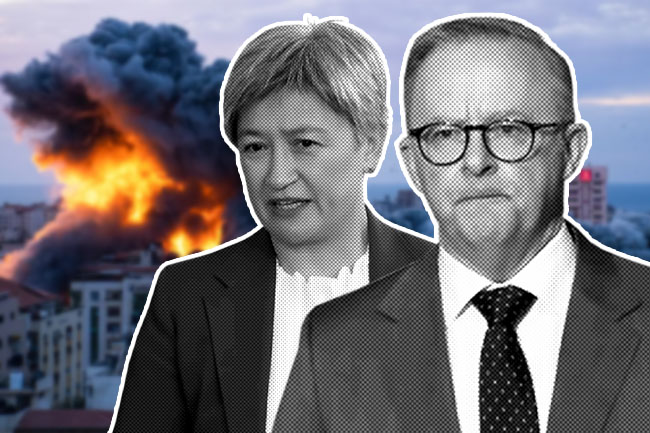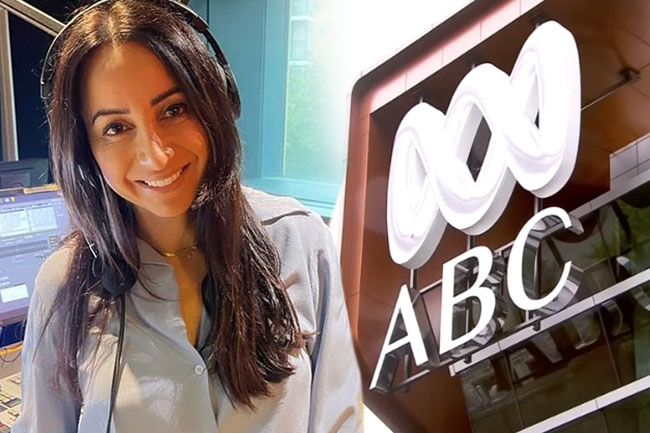Morrison's "daggy dad" narrative that won the Coalition the last election has evolved into the "heroic", top-down action narrative many people long for in a time of fear and uncertainty, writes Dr Jennifer Wilson.
Given Prime Minister Scott Morrison’s rise in popularity over the last couple of weeks, it’s tempting to speculate that the COVID-19 pandemic might be perceived as a godsend for a Prime Minister still reeling from scathing criticism of his handling of last summer's catastrophic bushfires.
Pandemics, like wars, can resurrect failing political leaders — and they don’t have to be particularly talented in order to garner popular support. This is known as the "rally-round-the-flag" effect currently enjoyed by U.S. President Donald Trump. Interestingly, the rallying effect is determined to some extent by the incumbent’s willingness to engage in bipartisanship, which
Morrison demonstrated with his announcement of a National Cabinet to deal with the COVID-19 crisis and his subsequent observation that there are "no blue or red teams".
For those of us who might be described as political "tragics", this sudden surge in the Prime Minister’s popularity could be viewed with some alarm. Are memories really so short? Well, yes, memories are short. Particularly in times of crisis when what’s needed is someone to take charge or, more accurately, adequately perform the act of taking charge to the degree that citizens are sufficiently reassured.
The theatre of politics, its optics, do not cease to matter in a crisis. Indeed, they become more significant than ever. The efficacy or otherwise of decisions taken during the crisis period may not become apparent for some time after events have subsided. What matters politically is their immediate popular appeal.
When people are frightened we look for a leader to provide an authoritative account of the circumstances in which we find ourselves. Morrison has managed, after a bad start, to put his instinctive authoritarian populism to good use. The "daggy dad" narrative that won the Coalition the last election has evolved into the heroic, top-down action narrative many people long for in a time of fear and uncertainty.
The daggy dad has donned his superhero cape. And isn’t this what everyone wants a father figure to do? He loves the footy and he can keep us safe. It’s a powerful combination with broad appeal. The fact that Morrison is little more than the spokesperson for an army of experts, advisors and public servants doing the hard yards is irrelevant in the top-down narrative, which is hierarchical & requires a focus on one individual.
People who identified with the values of the daggy dad will likely embrace the values of the latest message, which means they identify with the Prime Minister and have forged a psychological alliance with him. To them, he understands the comfort of the ordinary and will be its protector.
During the last election, for example, pub patrons spoke warmly of Morrison:
'"ScoMo's attitude was grouse," Mr Vlasveld said. "He came and had a game of pool, had a chat with everyone and just blended in. You can talk to him like a real person. He's just a genuine, nice bloke."'
The sense of shared values doesn’t have to be realistic. There are many Trump supporters who believe the U.S. President shares their values when there’s evidence to the contrary. At times of great anxiety and stress, the need to survive is greater than the need to question.
While on the face of it we don’t seem to be in a hostage situation, in fact, we are. We are, as a nation, severely unsettled by the dramatic circumstances in which we find ourselves. We are powerless over those circumstances and entirely dependent on the Australian Government taking care of us. We are, like it or not, entirely captive to the Government’s actions at this time.
We can’t escape the Government. We can’t change the Government. We have no parliament and so no functioning Opposition to the Morrison Government. We are, in a very real sense, hostages and it appears that some of us are suffering from Stockholm Syndrome. Some of the hostages have developed positive feelings towards the captor. Despite some initial trepidation, bonding has occurred. The hostages believe in the humanity of the captor, so he is not seen as a threat. The hostages will defend the captor, even against fellow hostages. The captor appears competent, admittedly not a difficult achievement in this case, given the eye-wateringly low bar, however, appearance is what counts.
Morrison is nothing if not pragmatic. Claims that he has risen above politics are naïve. The man is more intensely political at this time than he has ever been, understanding at a rat-cunning level that he must create the appearance of co-operative unity, or epically fail. As befits the pragmatist, the Prime Minister has expediently adopted a new role. The role is currently working for him, just as the daggy dad persona worked for him during the election. It’s worth bearing in mind that Morrison was a child actor as well as a marketing man.
To be a country’s leader in the middle of a pandemic is a golden opportunity. For some, it is an opportunity to do good and act well. For others, it is an opportunity to perform. It is only in the aftermath that we will be able to judge which Morrison has chosen. In the interim, we would do well to make sure we are informed hostages and keep our eyes open for indicators. Some of our best-known political commentators might have succumbed to the syndrome, so make sure you monitor them as well.
You can follow Dr Jennifer Wilson on her blog 'No Place for Sheep' or on Twitter @NoPlaceForSheep.
 This work is licensed under a Creative Commons Attribution-NonCommercial-NoDerivs 3.0 Australia License
This work is licensed under a Creative Commons Attribution-NonCommercial-NoDerivs 3.0 Australia License
Support independent journalism Subscribe to IA.












